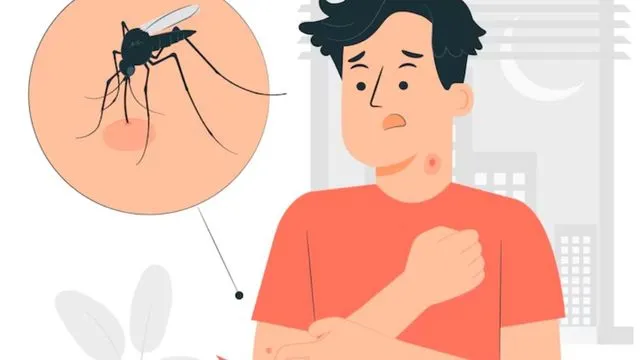- By Priyanka Munshi
- Thu, 16 May 2024 11:47 AM (IST)
- Source:JND
National Dengue Day 2024: The dengue virus, which causes dengue fever, is spread by mosquitoes and can result in several co-infections and complications that pose serious health risks. Severe dengue complications include dengue hemorrhagic fever (DHF) and dengue shock syndrome (DSS), characterized by bleeding, plasma leakage, and organ dysfunction. The rapid progression of DHF can result in organ failure and circulatory collapse.
Dengue can also increase the risk of secondary infections, worsening the condition. Examples of these illnesses include urinary tract infections and bacterial pneumonia. To mitigate these problems and enhance patient outcomes, early detection, supportive care, and appropriate medical management are imperative. In a conversation with Jagran English, Dr. M. Govardhan, a senior consultant in internal medicine at CARE Hospitals in Nampally, Hyderabad, discussed dengue and co-infections, focusing on understanding complications and treatment challenges.
According to Dr. M. Govardhan, dengue fever, a viral illness caused by mosquitoes, often leads to various complications, especially with overlapping co-infections. Co-infections can worsen symptoms, present diagnostic challenges, and impede treatment. It is essential to understand the complexities of dengue and co-morbidities and how they impact the treatment process.
Dengue fever can co-occur with other diseases caused by bacteria, viruses, and parasites. For instance, the Zika virus, like dengue, is transmitted by the same mosquito species. Diagnosing such a co-infection can be difficult because it might produce overlapping symptoms, such as fever and joint pain. Chikungunya is another mosquito-borne virus that exacerbates the patient's condition and increases morbidity. Additionally, malaria (a parasitic disease) and bacterial infections such as Salmonella can cause significant problems, including blood poisoning. Therefore, proper diagnosis and personalized treatment are vital for ensuring the patient's speedy recovery.

National Dengue Day 2024(Image Credit:Freepik)
Also Read: 6 Reasons Why You Must Add Lettuce To Your Daily Diet
Dr. M. Govardhan also noted that co-infections could cause more severe manifestations of dengue fever, such as DSS and DHF, through amplified symptoms. There may be discrepancies in diagnosis due to overlapping clinical features between dengue and co-infecting pathogens, delaying proper treatment. Due to the unique characteristics and treatment approaches for each co-infecting pathogen, a multifaceted method is required for medical care. Antivirals or antibacterials must be administered with consideration of potential drug interactions, which is often risky. Co-infections lead to higher mortality rates and several medical issues, particularly in areas with limited resources and infrastructure.
Several challenges exist in treating dengue and co-infections. It is necessary to accurately and rapidly diagnose patients with tests capable of identifying multiple pathogens simultaneously. Patients should also be supported in managing pain and fluid levels, easing the medical care process. Treatment plans should consider the pathogen involved, patient comorbidities, and disease severity. Other measures, such as vector control, to mitigate mosquito-borne infections like dengue will also help reduce the strain of dengue fever and co-infections.
Also Read: National Dengue Day 2024: 10 Uplifting Quotes To Share To Spread Awareness
Finally, Dr. M. Govardhan emphasized that dengue co-infections present numerous healthcare challenges, inhibiting proper treatment and diagnosis. Efficient methods of diagnosis, patient care, and vector control are necessary to lower the impact of co-infections. Addressing these issues will improve healthcare for patients and safeguard public health in endemic regions.

